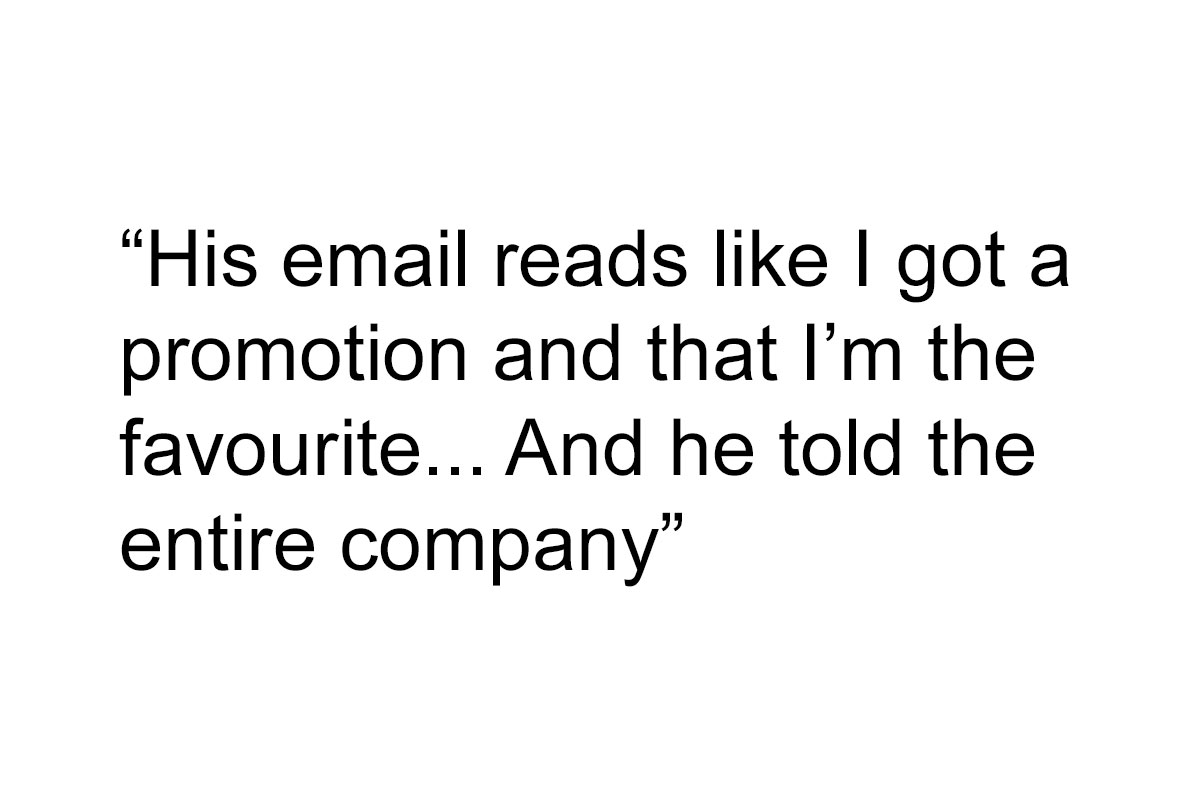
CEO’s Email Blunder Leaves New Hire Infuriated As His Actual Salary Is Revealed
InterviewSome information is better kept a secret, whether it’s something confidential or things certain people would rather not share.
This redditor, for instance, wasn’t planning on telling his entire company what his pay increase after finishing the probation period was going to be. But his boss accidentally did it for him, leaving him mildly infuriated.
Scroll down to find the full story below, where you will also find Bored Panda’s interviews with the OP himself, as well as an associate professor of management and UD-SWUFE Joint Institute Fellow at the Alfred Lerner College of Business and Economics at the University of Delaware, Dustin J. Sleesman, who was kind enough to share his thoughts on the situation.
In many companies, salary-related information is not accessible for everyone
Image credits: Tima Miroshnichenko / pexels (not the actual photo)
This redditor wasn’t planning on sharing how much he makes with the entire company
Image credits: Glenn Carstens-Peters / unsplahs (not the actual photo)
Image credits: 84 Video / unsplahs (not the actual photo)
Image credits: Image credits: Defiant_Bad_9070
Knowing certain personal information can affect the way people view us
“Decisions involving money are taboo for a lot of people, including how much they paid for their car or house, or whether they got a big pay increase at work,” associate professor of management Dustin J. Sleesman told Bored Panda in a recent interview.
According to the expert, money is more than a currency. It has social value in shaping how other people view us—and the perceptions they form are out of our control. “Sure, people may believe that you worked hard and deserved that big raise. But others may assume that you shouldn’t have received it. They might be jealous or start wondering if your boss was biased in your favor. To avoid these assumptions and questions from others, many people prefer to keep things private,” he explained.
In an interview with Bored Panda, the OP revealed that many people have likely misunderstood what his problem with the situation was. “I’m not a believer in never discussing your income, I actually have zero issues with my colleagues doing that if they choose. However, I’d rather not discuss those details of my life and I don’t have a need to know theirs,” he shared.
“My salary being disclosed happened because of a simple mistake in our email system. It was a problem that I had raised several times in the months that I had been there. It was totally avoidable. That was the first frustrating part.”
According to Sleesman, a superior accidentally revealing personal information about an employee is likely to erode some trust. “Even if the manager profusely apologizes to the employee, I expect that trust won’t fully be restored for quite some time. And I think the manager’s perceived trustworthiness is likely to take a hit in the eyes of other employees, too. They may think twice about sharing confidential information with that manager, even if it involves an unrelated topic.”
The OP continued that the second thing that upset him was how the email was worded. “It was mentioned that I was getting a raise. But actually, I wasn’t. See, when I started I negotiated a salary of ‘Y’ but they were hesitant and so we agreed that during my probation period, they would pay me ‘X’ and if they decided to keep me on then my salary would move to the agreed amount. They wanted to keep me so that meant my pay went up to the agreed amount.
“I wasn’t being paid more or getting a promotion. But the email basically told everyone who didn’t know the situation that the new guy just got a payrise and a promotion as it also mentioned discussing some additional responsibilities they’d like me to consider doing.”
Certain pay transparency laws are implemented in order to minimize the gender pay gap
While having certain personal information revealed by a superior, especially by accident, is not ideal, transparency regarding employee pay can arguably bring a positive change in the workforce. That’s why quite a few places around the world have implemented certain pay transparency laws, hoping that it might help minimize the gender pay gap.
For example, seeking to strengthen the principle of equal pay for equal work between men and women, the European Council adopted new rules on pay transparency in April, 2023. “Under the new rules, EU companies will be required to share information on salaries and take action if their gender pay gap exceeds 5%,” the information provided by the European Council read.
“The directive also includes provisions on compensation for victims of pay discrimination and penalties, including fines, for employers who break the rules.” (In the year 2020, the gender pay gap in the EU was reportedly around 13% on average, meaning that women earn on average 13% less than men per hour.)
According to The New York Times, salary-related laws went into effect in 2023 in the US as well, according to which companies in California and Washington State were required to post salary ranges on job listings. The laws were passed hoping that they can help reduce wage gaps, too, and according to an economist at Harvard Business School, Zoe Cullen, they do. “It is totally 100 percent true across all the studies I’ve seen, with very few exceptions,” the New York Times reports the expert saying.
Companies should aim to be transparent not only about the salaries but about the processes of how they are determined, too
Image credits: Igal Ness / unsplash (not the actual photo)
While many would agree that pay transparency can bring a positive change, it might have some detrimental effects, too. As pointed out in Harvard Business Review, “transparency drives managers to make employees’ performance-based incentives more similar to each other—in other words, compressing them—thereby reducing the pay dispersion driving employee concerns and complaints about pay inequity.”
Assoc. Prof. Sleesman suggested that when it comes to companies thinking about making salaries public, they should make a distinction between outcome and process. “A lot of attention is given to the outcome or the actual employee salaries. Should we make the salaries public or not? But companies should devote more attention to the process, which is how employees earn their salaries.
“If companies aren’t transparent about what typically determines the initial salaries of employees or how employees earn raises or promotions (the process), then making salaries transparent (the outcome) can be a big mistake. That will open Pandora’s box because employees will start to ask a lot of questions that managers may not be able to answer. Some people will be jealous or embarrassed, and allegations of unfairness or bias are likely to ensue,” he explained.
“In my opinion, companies that want to make salaries transparent need to have clearly articulated policies that explain the decision-making process behind those salaries. Otherwise, their efforts to be transparent are likely to backfire.”
The OP admitted feeling resentment from fellow colleagues after the information regarding his pay increase became public
“I think in the ideal world, it’s not a bad thing. But we don’t live in an ideal world,” the OP said, referring to sharing certain personal information at work. “If you know you’re being paid the same as the laziest worker, why put in the effort to do more if there is no benefit for you? On the other hand, if the company doesn’t see that you can do more, why would they increase it if you ask for more? Having been a manager of big and small teams for a long time, I can give so many examples of the benefits and the drawbacks of knowing and not knowing.”
The redditor opened up that since the occurrence with his boss revealing the information, there has been some resentment towards him by some people who are paid less. “Officially, I don’t know why they’re paid less than me,” he said. “However, they also don’t know why I’m paid more than they are. Just like there are colleagues who no doubt earn more than I do and I don’t officially know why either. But I do know that some have been at the company a long time and have proven to be very valuable assets, others have come with amazing experience and skill sets, so I can only assume that’s why they might be paid more than me.
“But that’s their business. Not mine,” the netizen continued. “I’m being paid fairly for what I do. I know this not because of any market rates or comparative values. But because I asked myself, what amount of compensation would satisfy me in this role. And that’s what I negotiated for and that’s what I’m being paid.”
The OP revealed what annoyed him about the situation
People in the comments shared their views on the matter
Some netizens didn’t see the problem with salaries being disclosed
Others disagreed and preferred their co-workers didn’t know how much they make
Poll Question
Thanks! Check out the results:
There can be downsides to disclosing salaries. When the range of pay in that position is a big one and kids out of college don't understand the value of experience and skill development, they can quiet quit real quick when they find out the older worker is making so much more than they are. This happened where I worked and the kid stopped doing his job basically but he was in the boys club so had no consequences, me and the woman whose pay he found out about had to take on his load. He could never see reason and just thought he was smarter than she was so should be making more. He eventually transferred and repeated the same thing in another department. Last I heard he was leaving for yet another department because he didn't get the pay the experienced people were getting.
There can be downsides to disclosing salaries. When the range of pay in that position is a big one and kids out of college don't understand the value of experience and skill development, they can quiet quit real quick when they find out the older worker is making so much more than they are. This happened where I worked and the kid stopped doing his job basically but he was in the boys club so had no consequences, me and the woman whose pay he found out about had to take on his load. He could never see reason and just thought he was smarter than she was so should be making more. He eventually transferred and repeated the same thing in another department. Last I heard he was leaving for yet another department because he didn't get the pay the experienced people were getting.

 Dark Mode
Dark Mode 

 No fees, cancel anytime
No fees, cancel anytime 



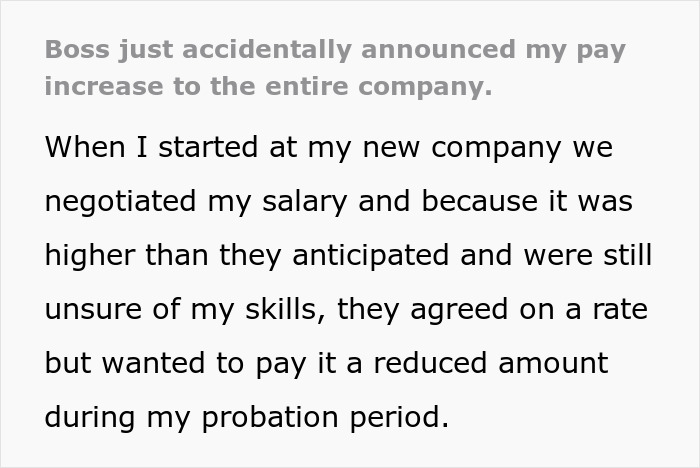

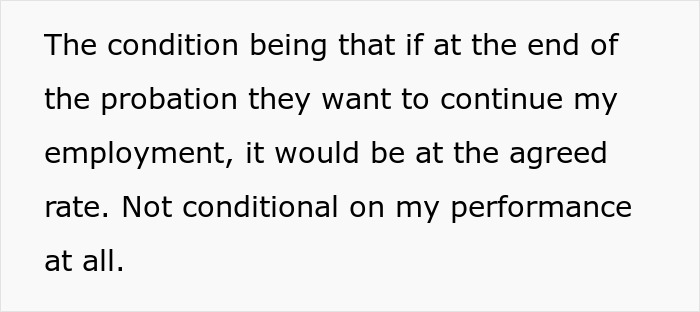


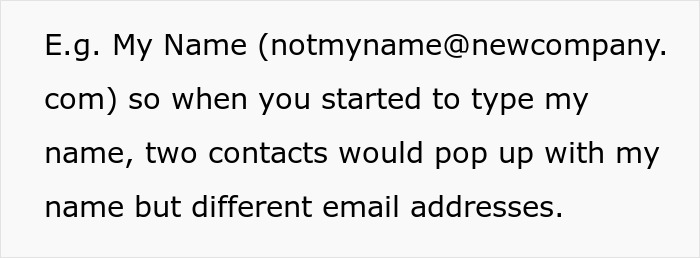

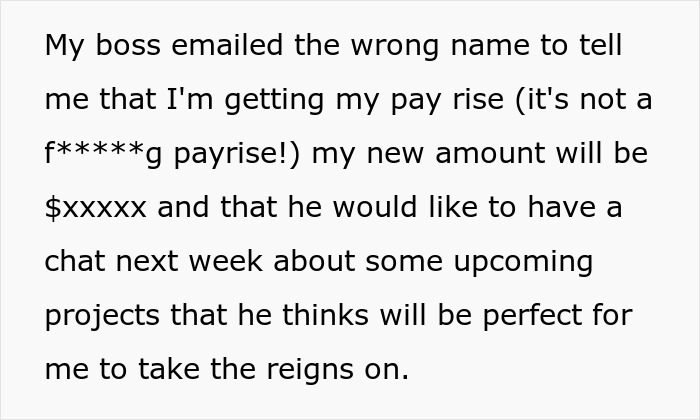

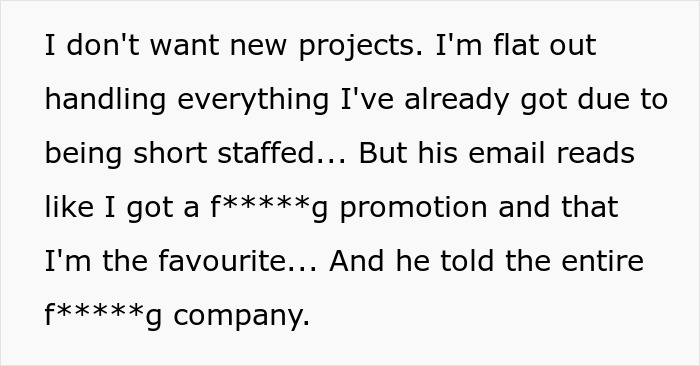


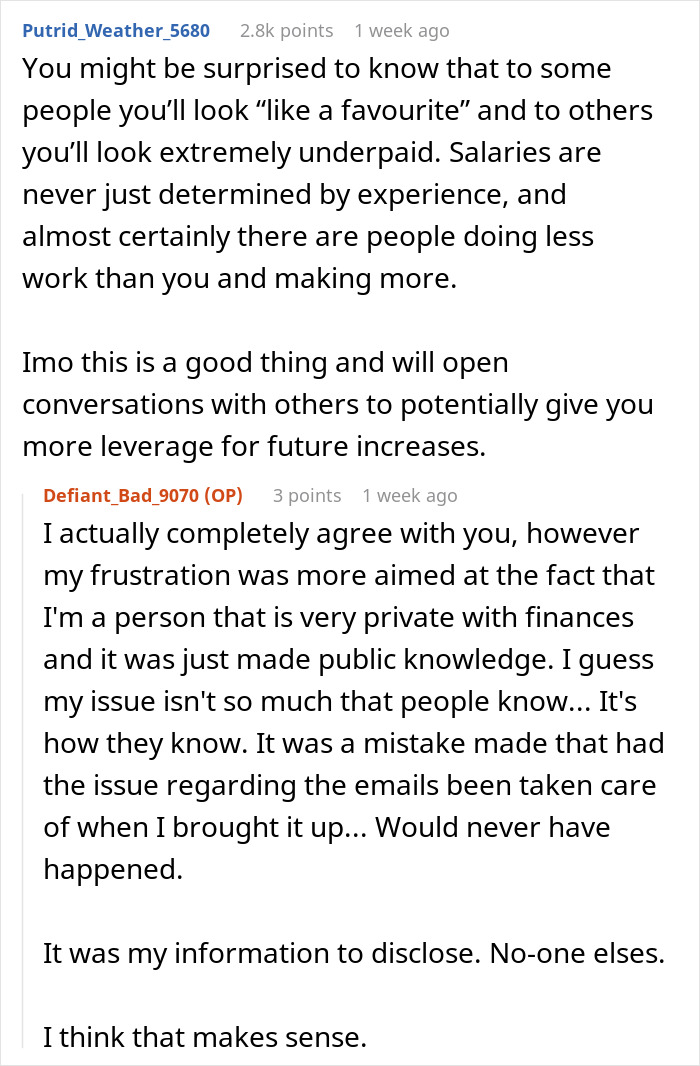
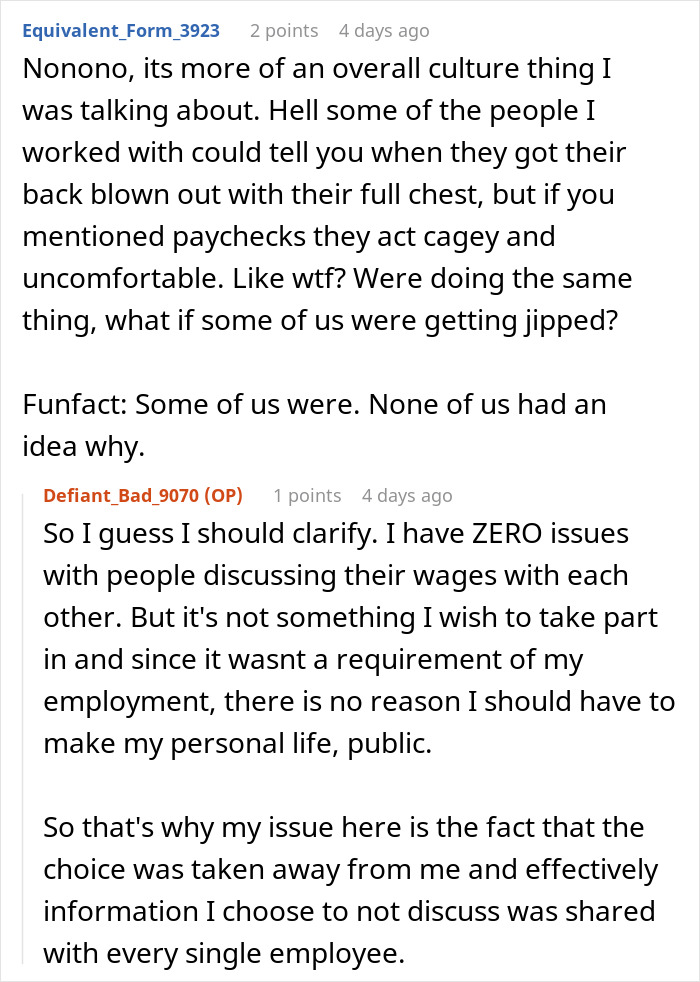
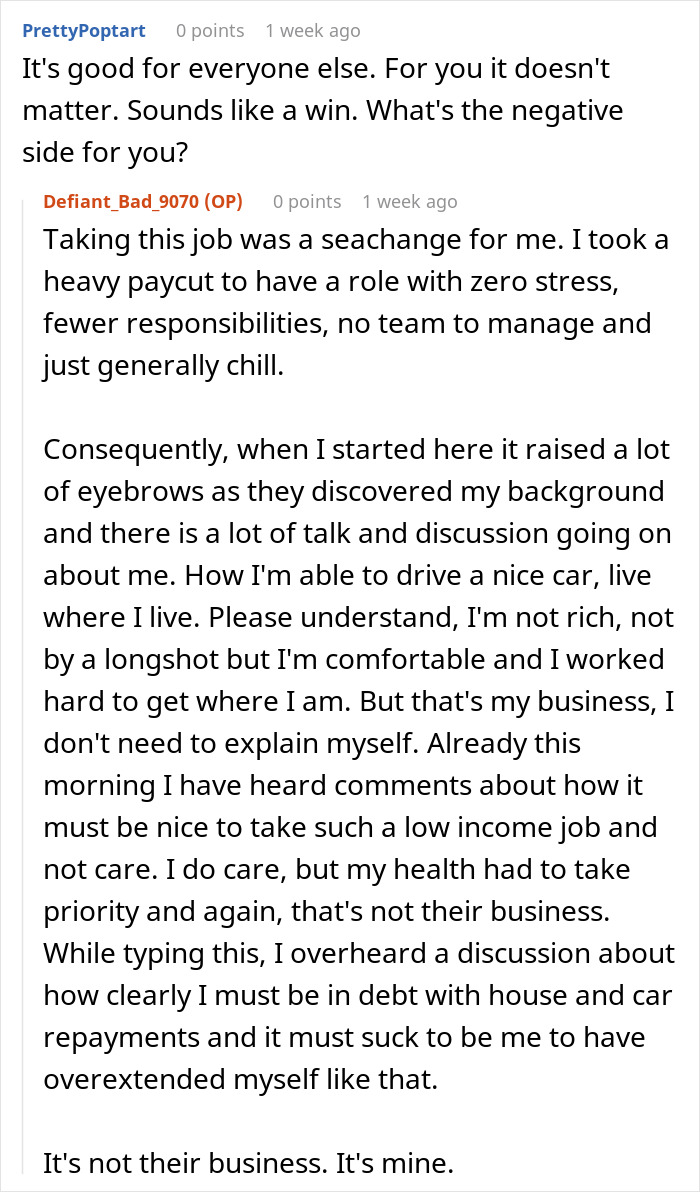
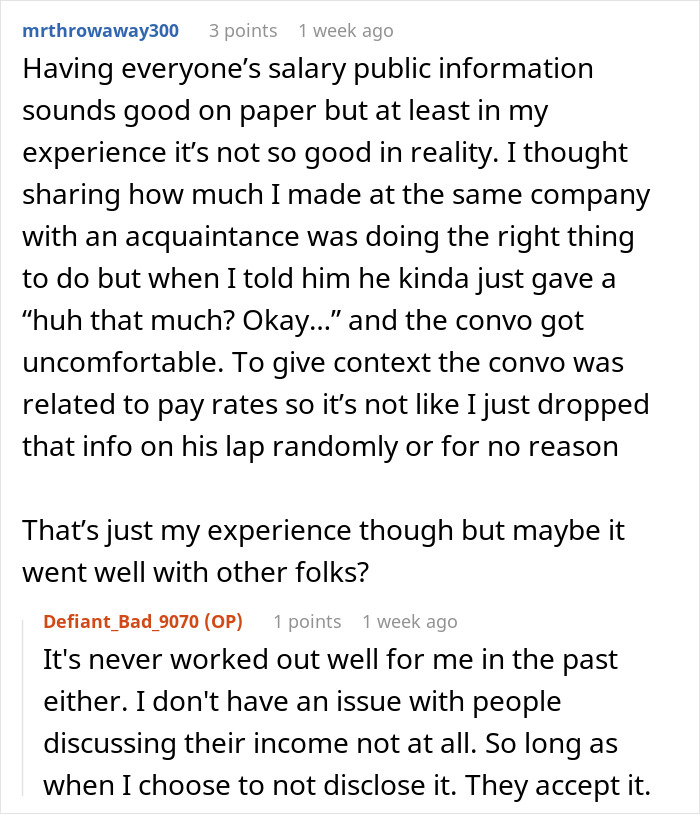
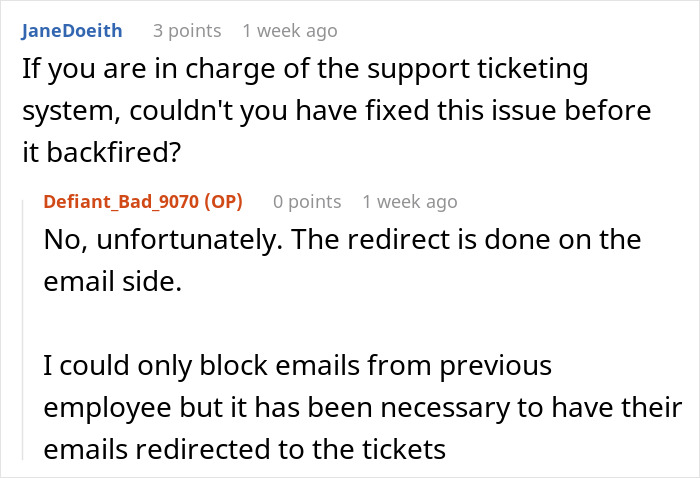

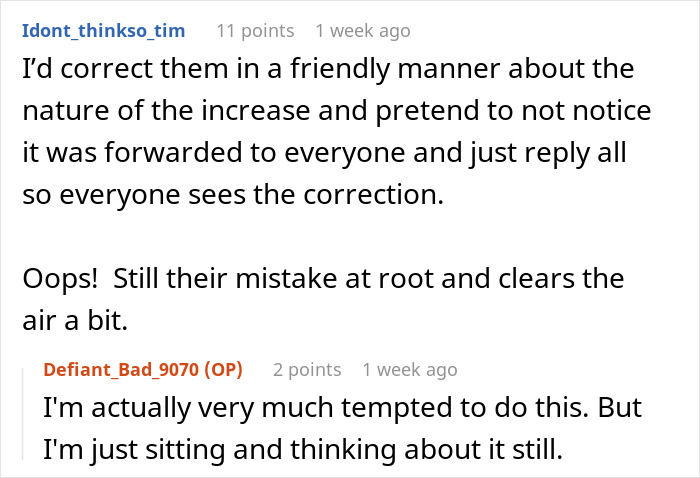
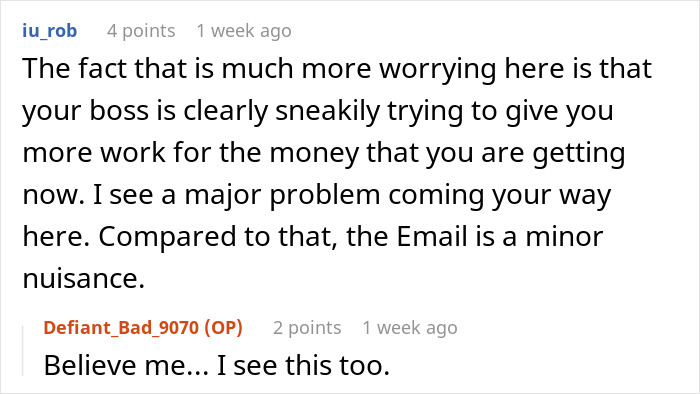

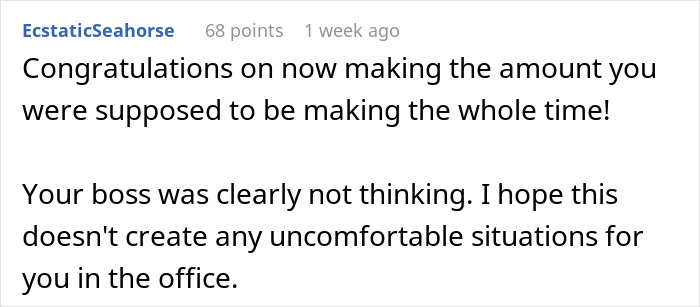
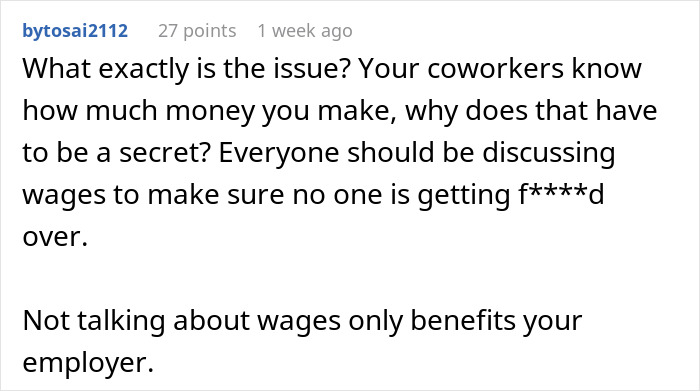


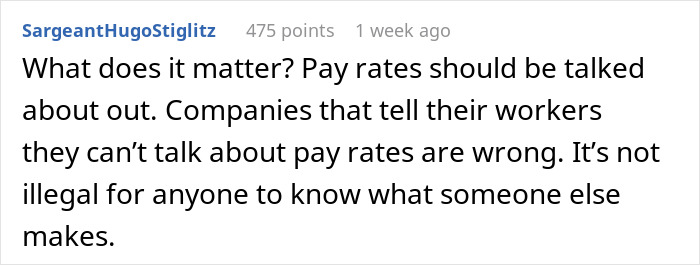

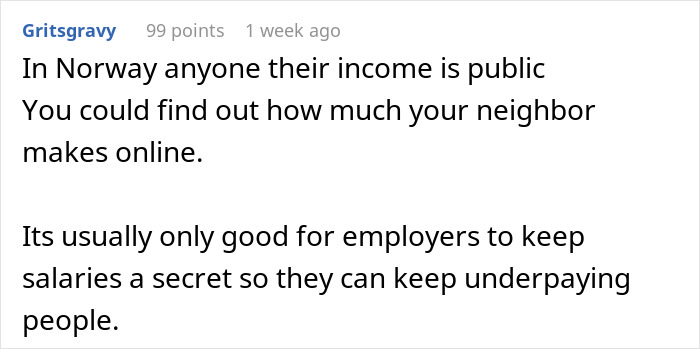

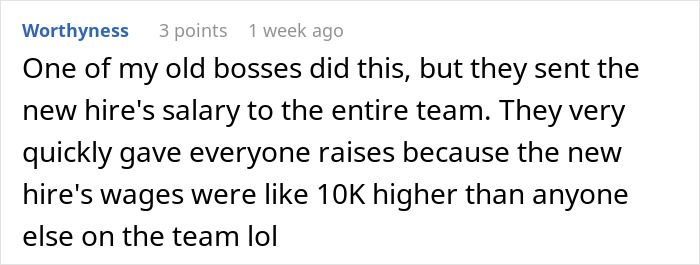
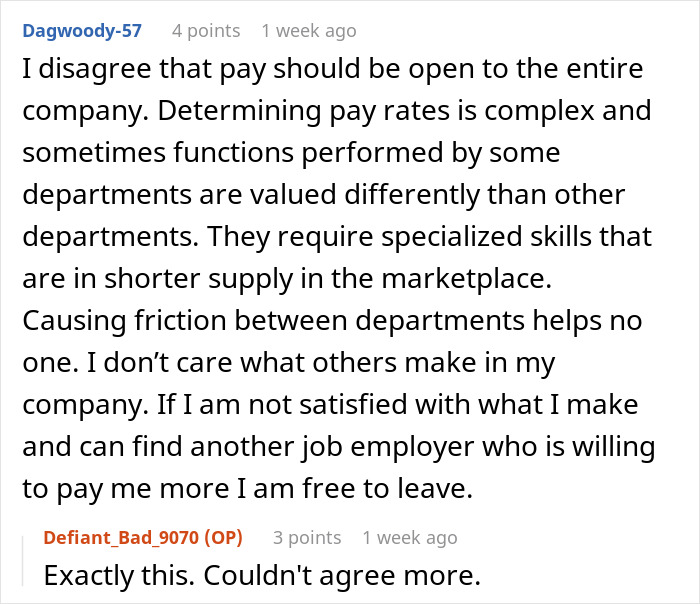
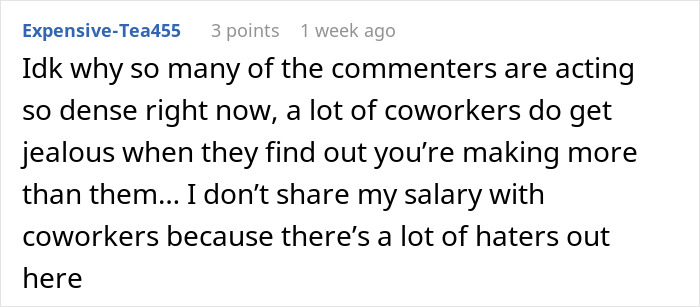
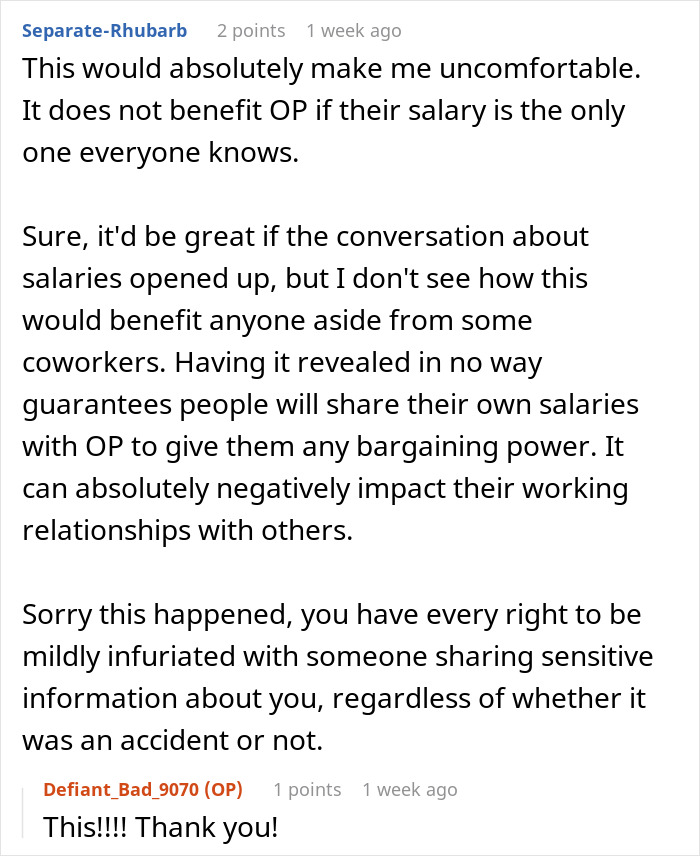




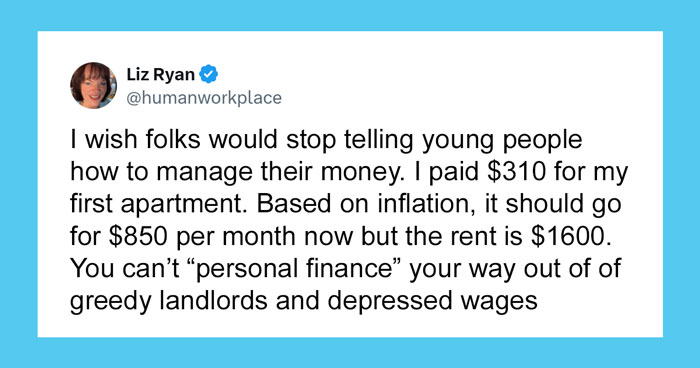



















35
2